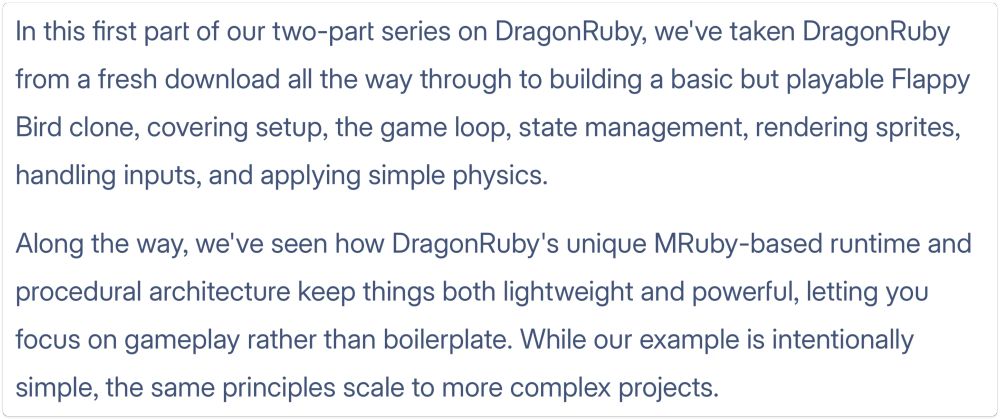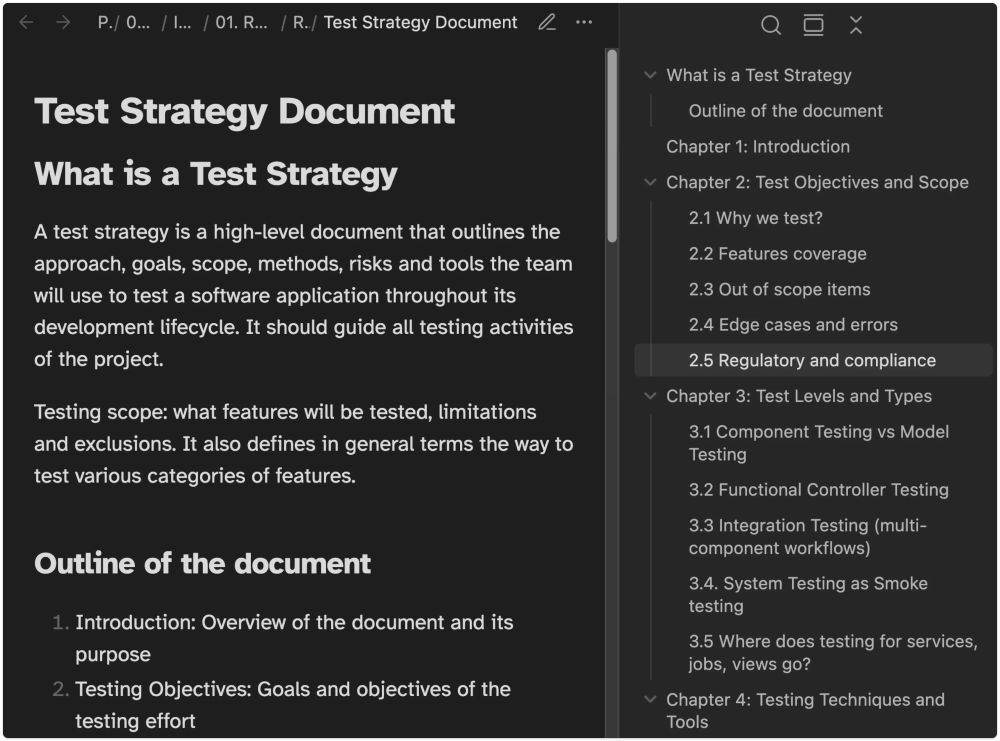‣ Curator of newsletter.shortruby.com
‣ Helping #Ruby developers design better test cases at https://goodenoughtesting.com
Avo continues to publish on their blog deep dive good tutorials and this one is no exception. Using ChunkyPNG and a bit of math you will generate some very nice mesh gradient avatars with Ruby.
avohq.io/blog/determ...

Avo continues to publish on their blog deep dive good tutorials and this one is no exception. Using ChunkyPNG and a bit of math you will generate some very nice mesh gradient avatars with Ruby.
avohq.io/blog/determ...
Jason goes over BetterSpec recommendation for using shared examples and builds up an argument for why in testing DRY might not be a good principle to follow.
www.saturnci.com/rspec-share...

Jason goes over BetterSpec recommendation for using shared examples and builds up an argument for why in testing DRY might not be a good principle to follow.
www.saturnci.com/rspec-share...
He explores a puzzling Ruby memory bug, guiding us through clues and insights into Ruby's memory model. It feels like a detective's journey.
mensfeld.pl/2025/11/rub...

He explores a puzzling Ruby memory bug, guiding us through clues and insights into Ruby's memory model. It feels like a detective's journey.
mensfeld.pl/2025/11/rub...
Enjoyed Noel's exploration of Smalltalk, highlighting its innovations and how Ruby borrowed from it. Insightful, especially from someone with professional experience in Smalltalk.
noelrappin.com/blog/2025/1...

Enjoyed Noel's exploration of Smalltalk, highlighting its innovations and how Ruby borrowed from it. Insightful, especially from someone with professional experience in Smalltalk.
noelrappin.com/blog/2025/1...
An excellent exploration of using Ruby beyond web apps. This post provides enough information to get you excited about having fun with DragonRuby
blog.appsignal.com/2025/11/05/...

An excellent exploration of using Ruby beyond web apps. This post provides enough information to get you excited about having fun with DragonRuby
blog.appsignal.com/2025/11/05/...
#FiveRubyLinks #Ruby #Rails #Reading

#FiveRubyLinks #Ruby #Rails #Reading
This will be about the Test Strategy, a document that will be useful for both agentic AIs and individual contributors

This will be about the Test Strategy, a document that will be useful for both agentic AIs and individual contributors

bugs.ruby-lang.org/issues/2138...

bugs.ruby-lang.org/issues/2138...
bugs.ruby-lang.org/issues/21385

bugs.ruby-lang.org/issues/21385

- InNode (location: (2,8)-(3,23))
- @ InNode (location: (3,24)-(3,33))
So it is parsed as being a second condition of the case and not inside

- InNode (location: (2,8)-(3,23))
- @ InNode (location: (3,24)-(3,33))
So it is parsed as being a second condition of the case and not inside
I think it is parsed like this (but I am not 100% sure - you should look at how Prism is parsing that code)

I think it is parsed like this (but I am not 100% sure - you should look at how Prism is parsing that code)








While reading a test, you have to keep in mind which letters were with ! and also how their order appeared when defined.

While reading a test, you have to keep in mind which letters were with ! and also how their order appeared when defined.
How quickly can you identify which statements will be executed before the test code runs?

How quickly can you identify which statements will be executed before the test code runs?

What is a precondition in testing?
Precondition = the required state of the system before running a specific test.

What is a precondition in testing?
Precondition = the required state of the system before running a specific test.

